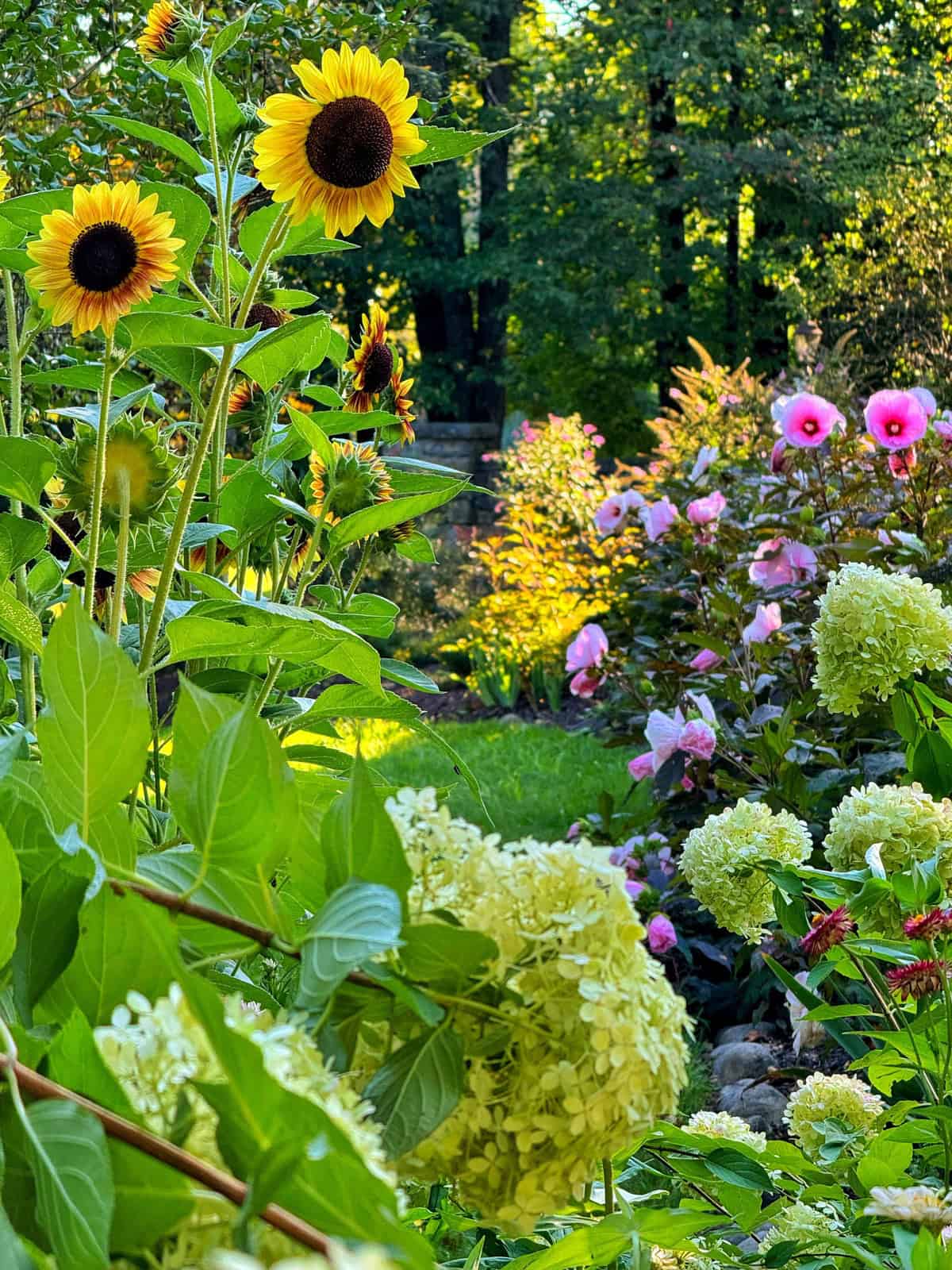Organic gardening is more than just a method of growing plants; it is a philosophy that embraces sustainability, health, and a deep connection to nature. As you delve into the world of organic gardening, you will discover a practice that not only nurtures the earth but also enriches your life. This approach to gardening emphasizes the use of natural processes and materials, steering clear of synthetic fertilizers and pesticides.
By choosing organic gardening, you are making a conscious decision to cultivate your garden in harmony with the environment, promoting biodiversity and soil health. As you embark on this journey, you will find that organic gardening is accessible to everyone, regardless of experience level. Whether you have a sprawling backyard or a small balcony, there are countless ways to grow your own organic produce.
The beauty of organic gardening lies in its adaptability; you can tailor your garden to fit your space, climate, and personal preferences. With a little patience and dedication, you can transform your surroundings into a thriving oasis that not only provides food but also fosters a sense of accomplishment and well-being.
Key Takeaways
- Organic gardening focuses on using natural methods to grow plants and vegetables without the use of synthetic chemicals or pesticides.
- Organic gardening promotes healthier eating habits and can lead to a reduced risk of exposure to harmful chemicals and toxins.
- Organic gardening helps to protect the environment by reducing pollution, conserving water, and promoting biodiversity.
- Organic gardening can save money in the long run by reducing the need for expensive chemical fertilizers and pesticides.
- Organic gardening can lead to higher levels of essential nutrients in fruits and vegetables, which can contribute to overall better health and well-being.
Health Benefits of Organic Gardening
Fresh Produce, Free from Harmful Chemicals
When you grow your own organic fruits and vegetables, you gain direct access to fresh produce that is free from harmful chemicals and pesticides. This means that you can enjoy the peace of mind that comes with knowing exactly what goes into your food.
Reduced Exposure to Harmful Substances
By consuming organic produce, you are reducing your exposure to potentially harmful substances, which can have long-term health implications. Moreover, the act of gardening itself is a physical activity that promotes overall well-being. As you dig, plant, weed, and harvest, you engage in a form of exercise that can improve your strength, flexibility, and cardiovascular health.
A Healthier Lifestyle through Gardening
The time spent outdoors in the fresh air and sunlight can also boost your mood and enhance your mental clarity. By incorporating organic gardening into your lifestyle, you are not only nourishing your body with wholesome food but also fostering a healthier lifestyle that encourages physical activity and mindfulness.
Environmental Benefits of Organic Gardening
Organic gardening plays a crucial role in promoting environmental sustainability. By avoiding synthetic chemicals and fertilizers, you contribute to the preservation of local ecosystems and biodiversity. Chemical runoff from conventional farming practices can contaminate waterways and harm aquatic life, but organic gardening minimizes this risk by utilizing natural methods for pest control and soil enrichment.
As you cultivate your garden organically, you are actively participating in the protection of the environment. Additionally, organic gardening encourages soil health through practices such as crop rotation, composting, and the use of cover crops. These methods enhance soil structure and fertility while reducing erosion and nutrient depletion.
Healthy soil is vital for supporting plant growth and maintaining a balanced ecosystem. By nurturing the soil in your garden, you are not only ensuring the success of your plants but also contributing to the overall health of the planet.
Cost Benefits of Organic Gardening
| Metrics | Data |
|---|---|
| Reduction in Water Usage | Up to 50% less water used in organic gardening compared to conventional methods |
| Decrease in Chemical Costs | Organic gardening eliminates the need for expensive chemical fertilizers and pesticides |
| Increased Soil Fertility | Organic gardening improves soil health and fertility, reducing the need for costly soil amendments |
| Lower Healthcare Costs | Consuming organic produce can lead to lower healthcare costs due to reduced exposure to harmful chemicals |
| Long-term Cost Savings | While initial setup costs may be higher, organic gardening can lead to significant long-term cost savings |
While some may perceive organic gardening as an expensive endeavor, it can actually lead to significant cost savings over time. By growing your own fruits and vegetables, you reduce your reliance on store-bought produce, which can be particularly costly when purchasing organic items. The initial investment in seeds, soil amendments, and gardening tools may seem daunting, but as your garden matures and begins to yield harvests, you will quickly realize the financial benefits of growing your own food.
Moreover, organic gardening allows you to take advantage of seasonal produce and reduce food waste. By planting what you love to eat and harvesting at peak ripeness, you can enjoy fresh ingredients without the fear of spoilage that often accompanies store-bought items. Additionally, many organic gardening practices encourage self-sufficiency; for instance, by saving seeds from your harvest or creating your own compost, you can further reduce costs while enhancing the sustainability of your garden.
Nutritional Benefits of Organic Gardening
The nutritional advantages of organic gardening are profound and far-reaching. Research has shown that organically grown produce often contains higher levels of essential nutrients compared to conventionally grown counterparts. This is largely due to the natural farming practices employed in organic gardening, which focus on building healthy soil and promoting plant vitality.
As you cultivate your garden organically, you are likely to reap the rewards in terms of flavor and nutritional density. Furthermore, growing your own food allows you to select varieties that are not only delicious but also packed with nutrients. You have the freedom to experiment with heirloom varieties or lesser-known crops that may not be available at local grocery stores.
This diversity not only enhances your diet but also introduces new flavors and textures to your meals. By embracing organic gardening, you are taking an active role in improving your nutrition while enjoying the satisfaction of growing your own food.
Community Benefits of Organic Gardening
Organic gardening has the power to strengthen communities by fostering connections among individuals who share a passion for sustainable living. Community gardens are an excellent example of how organic gardening can bring people together. These shared spaces provide opportunities for collaboration, education, and social interaction as neighbors come together to cultivate their plots and share their harvests.
In this way, organic gardening becomes a catalyst for building relationships and creating a sense of belonging. Moreover, community gardens often serve as educational hubs where individuals can learn about sustainable practices, nutrition, and environmental stewardship. Workshops and events hosted within these gardens can empower community members with knowledge about organic gardening techniques and healthy eating habits.
By participating in these initiatives, you contribute to a culture of sustainability that extends beyond your own garden and positively impacts those around you.
Mental and Emotional Benefits of Organic Gardening
The mental and emotional benefits of organic gardening are profound and transformative. Engaging with nature has been shown to reduce stress levels and promote feelings of tranquility. As you immerse yourself in the rhythm of planting, nurturing, and harvesting, you may find that your worries fade away, replaced by a sense of peace and fulfillment.
The act of tending to plants can be meditative; it encourages mindfulness as you focus on the present moment and connect with the earth. Additionally, organic gardening provides a creative outlet that allows you to express yourself through design and cultivation choices. You have the freedom to experiment with colors, shapes, and textures as you create a garden that reflects your personality and values.
This creative process can be incredibly rewarding, boosting your self-esteem as you witness the fruits of your labor come to life. By nurturing both plants and yourself through organic gardening, you cultivate not only a beautiful space but also a deeper sense of well-being.
Tips for Starting Your Own Organic Garden
If you’re ready to embark on your organic gardening journey, there are several key tips to keep in mind as you get started. First and foremost, choose a suitable location for your garden that receives ample sunlight—most vegetables thrive in at least six hours of direct sunlight each day. Assessing your soil quality is also crucial; consider conducting a soil test to determine its pH level and nutrient content.
This information will guide you in selecting appropriate amendments to create a fertile foundation for your plants. Next, start small! If you’re new to gardening, it’s wise to begin with a manageable plot or even container gardening if space is limited.
Select easy-to-grow crops such as tomatoes, lettuce, or herbs that will provide quick rewards for your efforts. As you gain confidence and experience, you can gradually expand your garden by experimenting with different varieties or planting techniques. In addition to these practical considerations, remember to embrace patience and resilience throughout the process.
Gardening is a journey filled with learning opportunities; not every seed will sprout or every plant will thrive. By approaching challenges with an open mind and a willingness to adapt, you’ll cultivate not only a flourishing garden but also valuable life skills that extend beyond the realm of horticulture. In conclusion, organic gardening offers an array of benefits that enrich both individuals and communities alike.
From health advantages to environmental sustainability, engaging in this practice allows you to connect with nature while promoting well-being for yourself and those around you. As you take the first steps toward starting your own organic garden, remember that each seed planted is an investment in a healthier future—one that nourishes both body and soul.
If you’re looking to enhance your organic garden, you may want to check out this article on nourishing your garden with organic vegetable soil. This informative piece provides valuable tips on how to enrich your soil naturally, ensuring your plants receive the nutrients they need to thrive. By incorporating organic soil into your gardening routine, you can promote healthier growth and more bountiful harvests.




